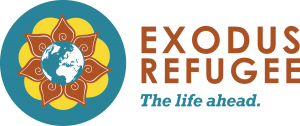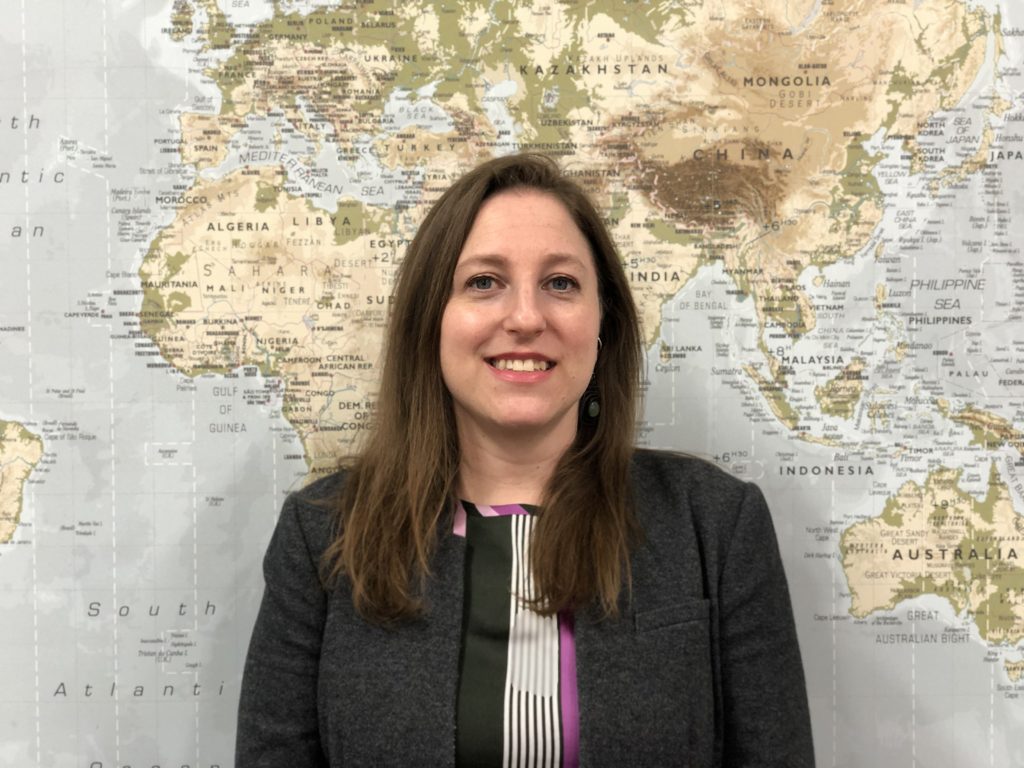Meet Danielle, Mental Wellness Coordinator
We are delighted to welcome Danielle Schneider-Moran, Exodus’ new Mental Wellness Coordinator.
1. Tell us a little about yourself.
I have over 10 years of experience working with diverse individuals from all over the world. I have a master’s degree in School Counseling and a Licensed Mental Health Graduate Certification from Butler University. Additionally, I hold a licensure in mental health counseling. I have supported individuals and families through private mental health practice as well as secondary school settings. Before I joined Exodus, I was the Associate Director of Student Life and Wellness at the Institute for Study Abroad (IFSA). At IFSA, I counseled professors, students, and IFSA’s international staff from 19 different countries on best practices to support students studying abroad as they navigated new cultures, languages, and school systems while dealing with disclosed mental health issues. One of the best parts of my job was leading short-term study abroad programs in Havana, Cuba. During my time in Cuba, I enjoyed interacting with students and faculty to help them better understand local culture and I looked for moments that empowered them to reflect about their experience.
2. What is your role at Exodus? What does that entail?
I am the Mental Wellness Coordinator at Exodus. As a trained mental health professional, I counsel individuals, groups, and families as they navigate life changes. I continually strive to create an environment where I am seen as approachable. In order to reach more clients, I meet some at their homes as transportation can be a barrier to services. No matter where we meet, I do my best to create a safe space where all individuals can feel heard and flourish. I have the pleasure of spending time with individuals from all over the world as we work together to set goals to help them acclimate to life in the United States.
3. Can you talk a little about mental health in the refugee community in general? What should people know?
Resettling in a new country is often seen as exciting, but it can also provoke other emotions such as fear and sadness. Refugees might be afraid of the major challenges associated with navigating a new culture. They might also carry sorrow for feeling like they abandoned friends and family. For many refugees and asylees, sitting down with me may be the first time they’ve been introduced to what mental health services are and how they might be able to benefit from them. In many areas of the world visiting a therapist or discussing mental health issues are considered taboo. Therefore, my job is not only to create a safe place for them to share but also to educate them on how my services might help them. From my experience, refugees and asylees are appreciative to have someone who they can trust with their story.
4. Why did you want to get involved in working with refugees and asylees?
My passion for supporting immigrants and refugees began when I was a restaurant manager. The more secure my staff felt with me, the more they shared their stories of hardship, hope, abuse, and determination. I learned about what kept them awake at night and saw that there was a lack of understanding around the ways that counseling could help them work through their journey. Their journeys shared through that trusted connection steered me on a path to live abroad and later led me to seek my licensure in mental health counseling in order to gain the tools to support refugees and asylees while they reach their goals.
5. How can the Indianapolis community be more inclusive and welcoming to refugees?
When interacting with the refugee community, seek to learn about their culture and their history. It is a great way to show that their past is important to you and that they bring many great qualities to the conversation. Remember, they carry a wealth of knowledge about parts of the world many of us have never been to. I also think it is important to have patience when supporting a refugee or an asylee. Not only is there typically a language barrier, but many of them have lived in a refugee camp or traveled to the United States to ask for help. Those experiences can change the way people react to things. Therefore, give them some extra grace and understanding because navigating another country’s cultural norms and systems is harder than it appears. Also, a smile makes a world of a difference. It can make someone feel welcomed, valued, and accepted. You don’t have to speak the same language to understand what a smile means.
6. What do you like to do in your spare time?
I love the outdoors! I’m either walking around the canal, hiking with a friend, or catching up with a friend over a cup of good coffee.


